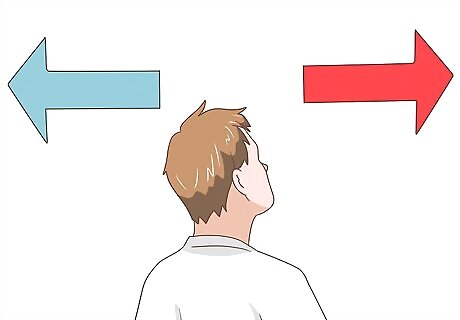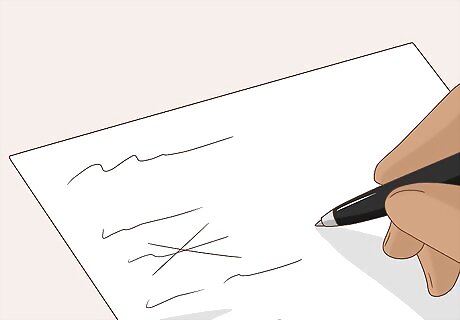
views
Be calm and patient.

Be calm and analyze the problem. Don't panic. Many poor decisions are made because people panic and don't think properly about the consequences of their decisions. Remaining calm and analyzing the options with a cool head is the best way to begin. Take your time and choose well, but remember that nobody is perfect; sometimes you might make a risky choice or end up picking a solution you regret, and that isn't the end of the world, either. Most moves in life aren't set in stone, and there's often, eventually a way to change course or resolve an unfortunate outcome, even if you make a choice you regret. There are choices that cannot ever be reversed though. Think about where a choice may lead you in the longer term, not just in there here and now. This is particularly important when it comes to life changing decisions such as starting a family, choosing a career or any choices with potentially dangerous outcomes such as serious injury or becoming involved in criminal activity. Reader Poll: We asked 156 wikiHow readers how to avoid making the same mistake, and 8% said they would ask loved ones to hold them accountable. [Take Poll] While this may not be the best strategy according to our readers, take time to think about the reasons for your mistake to understand what’s causing it.
Ask for help.

Consult people. Consultation helps you to organise your thoughts. When you are confused, talking about your options and the possible consequences can be one way to bring you back right on the track. Consult people you trust. When you are confused and can't come to a conclusion, ask the opinions of people you find trustworthy. Be it your parents or your best friends, they will be always ready to help you. Always remember that they are your supporters and always consider their opinions as a helping hand for you. Ask people who have been in the same boat or experienced the same choice. The ones who have already encountered such a situation will be the ones who can guide you the best under such circumstances. No two decisions or situations are identical, and a lot depends on the person, but you can still learn a lot from the experiences of others.
Make a list.

Make a list of all the possible choices so that you stay organised and evaluate them. Eliminate choices by setting standards. Think about your requirements and strike all the choices that are not up to the mark. Don't worry about finding the "best." Have faith in yourself. You must make sure that all the choices are listed and then as you start eliminating ones that don't fit, you will soon be clear on which path to take.
Think about the positive and negative outcomes.

This is the most important aspect of making decisions. After all, it's your decision and you are the one who is going to be affected. Remember that positives and negatives are two sides of the same coin. Every choice is accompanied by its pros and cons, and you can handle even relatively severe negative consequences, but go with the choice which serves you the most, if you are selfish. Think of the effect your choices have on others. Choose wisely, considering outcomes for everyone affected.
Don't overthink your decision.

It's always good to think about the after happenings but don't overdo it; instead just think about the major consequences and move on. Over-thinking only results in time and energy wasted. Keep your main analysis simple. Ask yourself questions like: "What will happen if go with this choice?", "What am I going to gain with this decision?", "What if something goes wrong?" etc. Once everything satisfies your choice, you are ready to take a responsible decision.



















Comments
0 comment